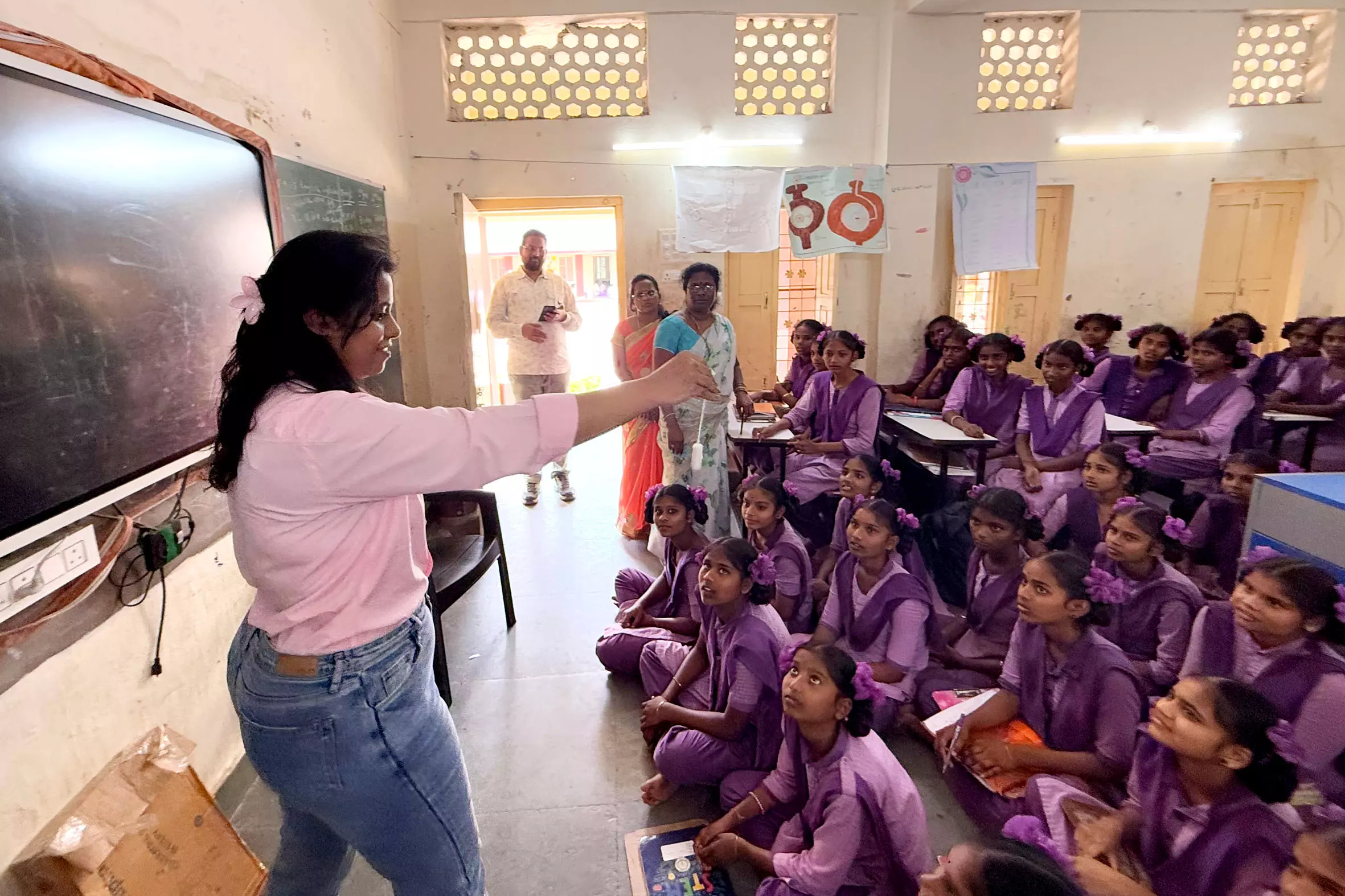Exemplary Women Driving Environmental Change in AP, TG
Ooha says, "Seeing women adopt our reusable pads affirms that empowerment and environmental protection can coexist."

Visakhapatnam: Certain women have been doing silent but exemplary work in the Telugu states of Andhra Pradesh and Telangana. Though side-lined often, they have become change agents in environmental conservation. Their dedication to restoring ecosystems, advocating water conservation and addressing deteriorating ecological issues highlights their dedication towards sustainability efforts.
One of these trailblazers is Farida Tampal, the state director of WWF-India, Hyderabad office. With a Master’s in Ecology from Pondicherry Central University, she embarked on her environmental journey as a Nature Club member in 1984. Since then, she has championed several projects, ranging from biodiversity studies to plantation drives. Among her innovative initiatives is installation of solar powered water systems in tiger reserves, so that water is available to wildlife during summers.
"This project of ours in Nallamala forest has set a precedent for similar projects nationwide," she pointed out.
Namitha Tarai is a marine biologist based in Visakhapatnam. Her work exemplifies her unwavering commitment to ocean conservation. A gold medallist from Andhra University, she has been working tirelessly towards combating marine pollution and addressing issues like plastic waste and ghost nets.
Namitha transforms collected plastics into usable materials, blending conservation with sustainability. Besides researching, she is a nature educator, protects marine habitats and organises bird watching sessions, tide-pool explorations and workshops for students and communities.
Another inspiring figure is Ooha Mahanti, an ecologist and conservation activist from Vizianagaram. Her journey toward sustainable living began after she witnessed the damage caused by plastic waste and disposable menstrual products. This led her to launch an initiative for creating reusable sanitary pads from used old fabric, which also provided livelihood opportunities for underserved women.
Ooha says, "Seeing women adopt our reusable pads affirms that empowerment and environmental protection can coexist."
Despite their achievements, these women face formidable challenges. Their resolve is continuously tested by societal norms that discourage female leadership and global culture that prods convenience-driven consumption,
However, the determination of these women remains steadfast. The ripple effects of their efforts are evident. Village schoolgirls are adopting menstrual cups, households are transitioning to composting and communities are embracing plastic-free alternatives. These showcase how grassroots activism can lead to significant environmental change.
These women prove that local actions can drive global impact. By amplifying their voices and supporting their initiatives, we take a step closer to a sustainable, equitable future where women lead the charge for a greener planet.

